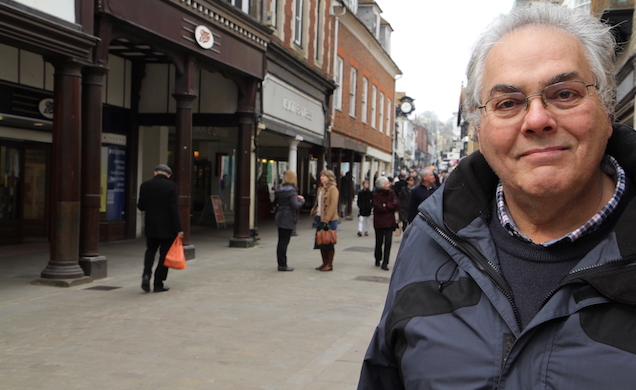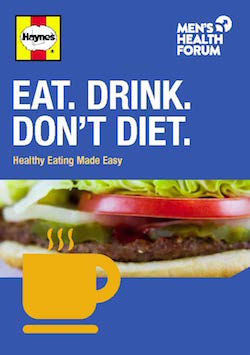Brian: 'Don't leave it too late to act on weight'

I was diagnosed at 50. I’ve always been overweight, even as a child. I noticed that I was drinking a lot of water. That was the trigger. The GP did a urine test there and then.
Now I have three medicines: metformin twice a day, pioglitazone and gliclazide. I recently had an HbA1c test and my blood sugar is still highish. It’s better when I’m losing weight but I haven’t got the willpower to do that by diet alone. I know everything about diet except how to do it. Portion control is the main thing for me.
Work used to be just about everything to me. I was going to a lot of formal functions with fatty food and drink and I was overdoing it. Things improved when I went to working three days a week. At the same time, if I wasn’t on the council or volunteering, I’d be less of me. It’s about balance.
I took up the gym four years ago and should have done it ages ago. I also run but I’m a bit of a fair-weather runner and don’t like the cold and rain.
I do wonder if diabetes was a factor in my stroke four and a half years ago. It has certainly caused erection problems and made it more difficult to get health insurance.
My advice would be not to leave it too late to take notice of your weight. It gets harder as you get older. Type 2 can be put into reverse and it’s much easier to lose weight at 45 than 65.
- After reading his interview when we first published it in Diabetes For Men, Brian decided to take further action. He has now joined a weight-watching programme and has begun to lose weight.
| This article reflects the experience of the individual. It is not health information from the Men's Health Forum under the terms of the NHS England Information Standard. |
|
The Men’s Health Forum need your support It’s tough for men to ask for help but if you don’t ask when you need it, things generally only get worse. So we’re asking. In the UK, one man in five dies before the age of 65. If we had health policies and services that better reflected the needs of the whole population, it might not be like that. But it is. Policies and services and indeed men have been like this for a long time and they don’t change overnight just because we want them to. It’s true that the UK’s men don’t have it bad compared to some other groups. We’re not asking you to ‘feel sorry’ for men or put them first. We’re talking here about something more complicated, something that falls outside the traditional charity fund-raising model of ‘doing something for those less fortunate than ourselves’. That model raises money but it seldom changes much. We’re talking about changing the way we look at the world. There is nothing inevitable about premature male death. Services accessible to all, a population better informed. These would benefit everyone - rich and poor, young and old, male and female - and that’s what we’re campaigning for. We’re not asking you to look at images of pity, we’re just asking you to look around at the society you live in, at the men you know and at the families with sons, fathers and grandads missing. Here’s our fund-raising page - please chip in if you can. |



